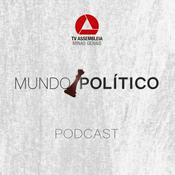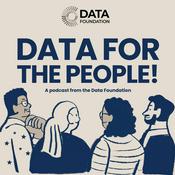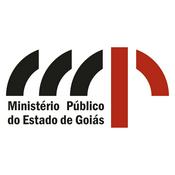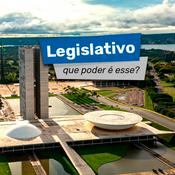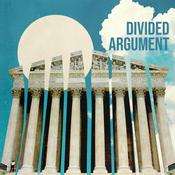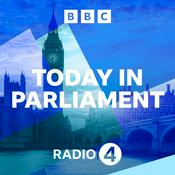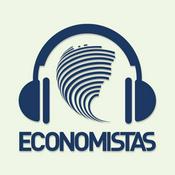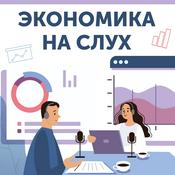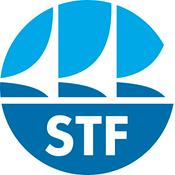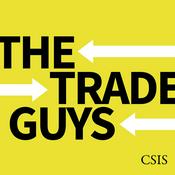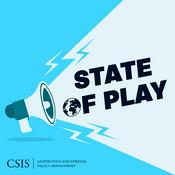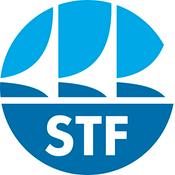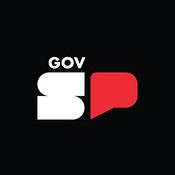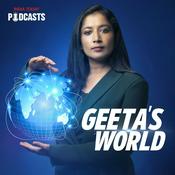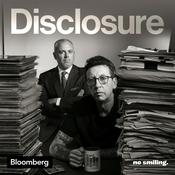184 episódios
- In a world where confidence is rewarded and humility can feel like a liability, Stanford Law professor Robert MacCoun argues for something radical: fewer unwavering opinions, more critical reflection, and a better way to disagree. On Stanford Legal, MacCoun joins co-hosts Pamela Karlan and Diego Zambrano for a conversation about how “habits of mind” borrowed from science can help citizens, lawyers, and policymakers think more clearly and function more effectively in a pluralistic society.
MacCoun is the James and Patricia Kowal Professor of Law at Stanford Law School, a professor by courtesy in Stanford’s Psychology Department, and the university’s senior associate vice provost for research. Trained as a social psychologist, his work sits at the intersection of law, science, and public policy, with decades of research on decision-making, bias, and the social dynamics that shape how evidence is interpreted. In the episode, he draws on his most recent book, Third Millennium Thinking: Creating Sense in a World of Nonsense, co-authored with Nobel Prize–winning physicist Saul Perlmutter and philosopher John Campbell, to explain why probabilistic thinking, intellectual humility, and what he calls an “opinion diet” are essential tools for modern civic life.
Links:
Robert MacCoun >>> Stanford Law page
Third Millennium Thinking >>> Stanford Law page
Connect:
Episode Transcripts >>> Stanford Legal Podcast Website
Stanford Legal Podcast >>> LinkedIn Page
Rich Ford >>> Twitter/X
Pam Karlan >>> Stanford Law School Page
Diego Zambrano >>> Stanford Law School Page
Stanford Law School >>> Twitter/X
Stanford Lawyer Magazine >>> Twitter/X
(00:00:00) Introduction and Noise vs. Bias
(00:04:42) The Power of Probabilistic Thinking
(00:12:20) Juries, Community Judgment, and Reasonable Doubt
(00:13:23) Habits of Community
(00:25:08) Motivation, Tools, and Decision Processes
(00:26:14) When Evidence Won’t Settle It
Hosted by Simplecast, an AdsWizz company. See pcm.adswizz.com for information about our collection and use of personal data for advertising. - Professor Kim Scheppele has spent much of her career watching democracies rise and fall. She went to Hungary in the early 1990s expecting to study democratic optimism after the fall of the Berlin Wall. Instead, decades later, she found herself documenting how constitutional democracy can be dismantled from the inside out.
That experience frames a wide-ranging conversation on the latest episode of Stanford Legal, where host Professor Pam Karlan speaks with Scheppele, the Lawrence S. Rockefeller Professor of Sociology and International Affairs at Princeton and a visiting professor at Stanford Law School, about how democracies crumble, and why the United States is not exempt.
Drawing on years of on-the-ground research in Hungary, Russia, and other countries, Scheppele explains a central shift in democratic collapse: it no longer arrives through overt rupture, but through elections followed by legal and constitutional maneuvering. Leaders campaign as democrats, win office, and then use technical changes to the law, including court rules, budgetary controls, and civil-service structures, to weaken checks and rig the system in their favor.
The discussion turns to the United States, examining how party polarization, shifting institutional loyalties, and expanding claims of executive power have made familiar safeguards less reliable than many assumed.
Links:
Kim Scheppele >>> Stanford Law page
Connect:
Episode Transcripts >>> Stanford Legal Podcast Website
Stanford Legal Podcast >>> LinkedIn Page
Rich Ford >>> Twitter/X
Pam Karlan >>> Stanford Law School Page
Diego Zambrano >>> Stanford Law School Page
Stanford Law School >>> Twitter/X
Stanford Lawyer Magazine >>> Twitter/X
(00:00:00) Learning in Wartime: A scholar’s antidote to the “cataract of nonsense”
(00:08:17) Patterns abroad and at home—are U.S. checks in danger?
(00:15:04) Naming the playbook
(00:32:07) More litigation—access, risk, and the pace of change
(00:32:39) Restoring democracy through law
Hosted by Simplecast, an AdsWizz company. See pcm.adswizz.com for information about our collection and use of personal data for advertising. - Can the United States arrest a foreign head of state by sending FBI agents—and military troops—into another country? On the latest episode of Stanford Legal, Professor Pam Karlan sits down with international law expert and Stanford Law lecturer Allen Weiner to discuss the recent extraction of Venezuela’s Nicolás Maduro. Their wide-ranging conversation focuses on the uneasy space where U.S. law collides with the constraints of international law.
Weiner, a former U.S. State Department legal adviser and now director of several international law–and humanitarian-focused programs at Stanford Law School, explains how domestic legal theories advanced to justify Operation Absolute Resolve in contrast with the UN Charter’s ban on the use of force. He situates the episode in a longer arc of U.S. efforts to reconcile military action with international legal limits, including earlier debates over actions in Kosovo and Libya.
The legal questions are substantial, but the stakes ultimately turn on precedent and norms: how U.S. actions are understood by other states, what they signal to rivals such as Russia and China, and whether the international system begins to resemble the logic captured in Thucydides’ Peloponnesian Wars—that “the strong do what they can and the weak suffer what they must.”
Links:
Allen Weiner >>> Stanford Law page
Connect:
Episode Transcripts >>> Stanford Legal Podcast Website
Stanford Legal Podcast >>> LinkedIn Page
Rich Ford >>> Twitter/X
Pam Karlan >>> Stanford Law School Page
Diego Zambrano >>> Stanford Law School Page
Stanford Law School >>> Twitter/X
Stanford Lawyer Magazine >>> Twitter/X
(00:00) Is a threat a use of force?
(00:16:18) Pressure, coercion, and the non-intervention line
(00:17:02) Venezuela policy and the specter of escalation
(00:28:24) Law, power, and the South China Sea
Hosted by Simplecast, an AdsWizz company. See pcm.adswizz.com for information about our collection and use of personal data for advertising. - What are the legal implications of the unprecedented mass pardoning of the January 6th rioters? What does it say about American rule of law?
President Biden’s DOJ prosecuted nearly 1,600 of the January 6, 2021, rioters—many for acts of shocking violence against police and government offices. On January 20, newly sworn-in President Trump, in one of his first official acts, issued a sweeping grant of clemency to all of the rioters charged in connection with the attack on the Capitol attack. He pardoned most defendants and commuted the sentences of 14 members of the Proud Boys and Oath Keepers militia, most of whom had been convicted of seditious conspiracy. The response from some of these violent rioters since the pardons has been alarming.
“The people who did this, they need to feel the heat. We need to find and put them behind bars for what they did,” said Enrique Tarrio, the former national Proud Boys leader, sentenced to a 22-year sentence on seditious conspiracy charges, on Alex Jones' podcast soon after his pardon.
Our guests today are Stanford Law Professor Shirin Sinnar and former DOJ prosecutor Brendan Ballou.
Sinnar’s scholarship, including a recent study of hate groups, focuses on the legal treatment of political violence, the procedural dimensions of civil rights litigation, and the role of institutions in protecting individual rights and democratic values in the national security context
Ballou was a lawyer at the Department of Justice for five years. He resigned on January 23 soon after President Trump's pardons. In a New York Times opinion essay, he wrote: “For while some convicted rioters seem genuinely remorseful, and others appear simply ready to put politics behind them, many others are emboldened by the termination of what they see as unjust prosecutions. Freed by the president, they have never been more dangerous.” He graduated from Stanford Law in 2016.
Links:
Shirin Sinnar >>> Stanford Law page
New York Times piece by Brendan Ballou >>> I Prosecuted the Capitol Rioters. They Have Never Been More Dangerous.
Connect:
Episode Transcripts >>> Stanford Legal Podcast Website
Stanford Legal Podcast >>> LinkedIn Page
Rich Ford >>> Twitter/X
Pam Karlan >>> Stanford Law School Page
Stanford Law School >>> Twitter/X
Stanford Lawyer Magazine >>> Twitter/X
(00:00:00) The January 6th Prosecutions and the Pardon Power
(00:06:26) Rewriting History and the Threat of Political Violence
(00:11:56) The Future of Political Violence in the U.S.
(17:24) Addressing Militia Violence and Legal Gaps
(21:37) State-Level Prosecutions and Risks of Expanding Criminal Laws
(25:27) Pardons, Political Violence, and Historical Parallels
Hosted by Simplecast, an AdsWizz company. See pcm.adswizz.com for information about our collection and use of personal data for advertising. - A coalition of privacy defenders led by Lex Lumina and the Electronic Frontier Foundation filed a lawsuit on February 11 asking a federal court to stop the U.S. Office of Personnel Management (OPM) from disclosing millions of Americans’ private, sensitive information to Elon Musk and his “Department of Government Efficiency” (DOGE). As the federal government is the nation’s largest employer, the records held by OPM represent one of the largest collections of sensitive personal data in the country.
Is this a big deal? Should we care? Joining Pam today is Stanford Law Professor Mark Lemley, an expert in intellectual property, patent law, trademark law, antitrust, the law of robotics and AI, video game law, and remedies. Lemley is of counsel with the law firm Lex Lumina and closely involved in the DOGE case. In this episode, Lemley overviews urgent privacy concerns that led to this lawsuit, laws such as the Privacy Act, and legal next steps for this case.
The conversation shifts to the current political landscape, highlighting the unprecedented influence of Silicon Valley, particularly under the Musk administration. Lemley contrasts the agile, authoritative management style of Silicon Valley billionaires with the traditionally slow-moving federal bureaucracy, raising concerns about legality and procedural adherence. The conversation also touches on the demise of the Chevron doctrine and the possible rise of an imperial presidency, drawing parallels between the Supreme Court's and the executive branch's power grabs—and how Lemley's 2022 paper, "The Imperial Supreme Court," predicted the Court's trend towards consolidating power. This episode offers a compelling examination of how technological and corporate ideologies are influencing American law.
Links:
Mark Lemley >>> Stanford Law page
“The Imperial Supreme Court” >>> Stanford Law publication page
Connect:
Episode Transcripts >>> Stanford Legal Podcast Website
Stanford Legal Podcast >>> LinkedIn Page
Rich Ford >>> Twitter/X
Pam Karlan >>> Stanford Law School Page
Stanford Law School >>> Twitter/X
Stanford Lawyer Magazine >>> Twitter/X
(00:00:00) The Rise of Executive Power
(00:07:22) Concerns About Data Handling and Privacy
(00:08:41) The Impact of Silicon Valley's Ethos on Government
(00:14:01) The Musk Administration's Approach
(00:18:01) The Role of the Supreme Court
(00:24:43) Silicon Valley's Influence on Washington
Hosted by Simplecast, an AdsWizz company. See pcm.adswizz.com for information about our collection and use of personal data for advertising.
Mais podcasts de Ciência política
Podcasts em tendência em Ciência política
Sobre Stanford Legal
Law touches most aspects of life. Here to help make sense of it is the Stanford Legal podcast, where we look at the cases, questions, conflicts, and legal stories that
affect us all every day.
Pam Karlan studies and teaches a range of constitutional law-related courses with a special focus on what is known as the “law of democracy,”—the law that regulates voting, elections, and the political process. She served as a commissioner on the California Fair Political Practices Commission, an assistant counsel and cooperating attorney for the NAACP Legal Defense Fund, and (twice) as a Deputy Assistant Attorney General in the Civil Rights Division of the U.S. Department of Justice. She also co-directs the Stanford Supreme Court Litigation Clinic, which represents real clients before the highest court in the country, working on important cases including representing Edith Windsor in the landmark case striking down the federal Defense of Marriage Act and Donald Zarda in a case where the Supreme Court held that Title VII of the Civil Rights Act of 1964 protects LGBT individuals against discrimination in employment. She has argued before the Court ten times.
And Diego A. Zambrano who’s primary research and teaching interests lie in the areas of civil procedure, transnational litigation, and judicial federalism. His work explores the civil litigation landscape: the institutions, norms, and incentives that influence litigant and judicial behavior. He also has an interest in comparative constitutional law and legal developments related to Latin America. Professor Zambrano is the Associate Dean for Global Programs and faculty director of the Neukom Center for the Rule of Law. In 2021, Professor Zambrano received the Barbara Allen Babcock Award for Excellence in Teaching.
Law matters. We hope you’ll listen to new episodes that will drop on Thursdays every two weeks.
To learn more, go to https://law.stanford.edu/stanford-legal-podcast/.
Site de podcastOuça Stanford Legal, Conexão Brasília-Ceará e muitos outros podcasts de todo o mundo com o aplicativo o radio.net
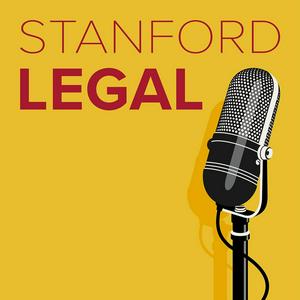
Obtenha o aplicativo gratuito radio.net
- Guardar rádios e podcasts favoritos
- Transmissão via Wi-Fi ou Bluetooth
- Carplay & Android Audo compatìvel
- E ainda mais funções
Obtenha o aplicativo gratuito radio.net
- Guardar rádios e podcasts favoritos
- Transmissão via Wi-Fi ou Bluetooth
- Carplay & Android Audo compatìvel
- E ainda mais funções


Stanford Legal
Leia o código,
baixe o aplicativo,
ouça.
baixe o aplicativo,
ouça.






